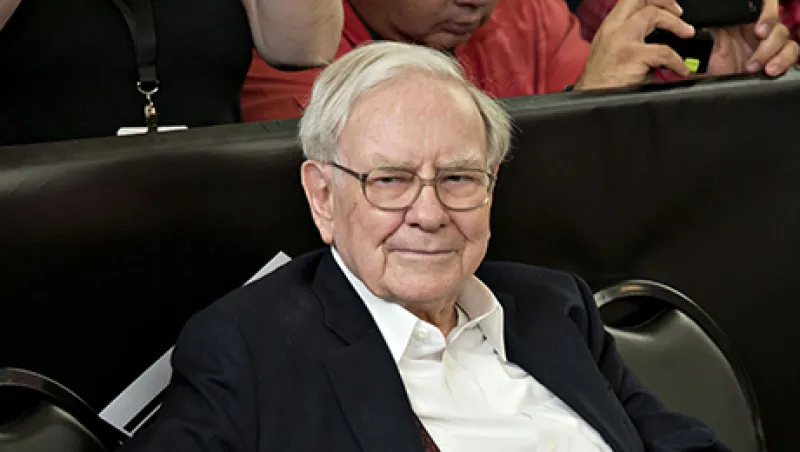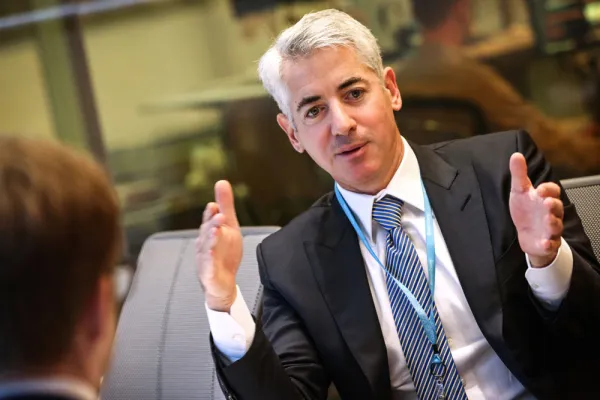The crews of Direxion Investments and start-up iBillionaire rang the New York Stock Exchange’s opening bell on Monday to kick off their new exchange-traded fund that seeks to replicate the returns afforded the world’s most triumphant investors. The new Direxion iBillionaire Index ETF (IBLN) holds 30 stocks from the S&P 500 universe, most of which have been owned by the 20 most successful billionaire investors over the past three years. The roster includes activist investors William Ackman, David Einhorn, Carl Icahn and others known to fire up media campaigns touting the virtues of their investments. IBLN offers small-time individual investors a way to get in on the headline-making action.
“There’s been more and more activist investors, and now you’re able to offer the individual investor an opportunity to see what the activists are buying and holding and follow on what they’re investing in,” says Brian Jacobs, New York–based president of mutual fund and ETF provider Direxion Investments. “It’s a way to democratize the information that the wealthiest investors have used for many years.”
But other analysts see this as a way for small-scale investors to ride on the coattails of the rock stars of the financial world — and they speculate that tracking the IBLN, like buying the music of actual rock stars, will do more to line the pockets of investment celebrities.
“All this is guaranteeing is to make those guys [billionaires] money,” says Alan Rosenfield, managing director of Harmony Asset Management, a wealth management firm with $25 million in assets in Scottsdale, Arizona. “Say I’m Warren Buffett. I made a position in ABC stock, and I think it’s undervalued,” he explains. “I’m going to tell you about it. It’s called talking their book. They do it on CNBC all the time.”
The ETF follows the 20 investors’ 13F filings. The paperwork is generally due within 45 days of the end of each quarter (although extensions are available). By the time IBLN buys the holdings, however, prices may already have been bid up, and filings don’t reveal how long an investor intends to hold a stock, Rosenfield adds.
“They’re trying to say you don’t have to do your homework; there’s this other guy that did the homework, and you get to buy like him basically for free,” he continues.
The iBillionaire ETF’s creators maintain that there is value in tracking the moves of A-list investors. “People follow these billionaires because they have outperformed the S&P,” says Raul Moreno, co-founder and CEO of iBillionaire. “They have information or some insight into companies that not a lot of people do. That’s why they’re billionaires.”
In addition to its ETF, iBillionaire offers a mobile phone app — currently with 140,000 users — that tracks a select group of billionaires and changes to their portfolios.
The ETF’s top holding, Apple, accounts for 16 percent of Einhorn’s portfolio at his hedge fund firm Greenlight Capital, 12 percent of Icahn’s portfolio and 1 percent of the portfolio of David Tepper, founder of Short Hills, New Jersey–based Appaloosa Management.
Seth Klarman, founder of Boston-based Baupost Group, has devoted 30 percent of his assets to Micron Technology, the ETF’s second-largest name. Einhorn is betting 16 percent of his money on the semiconductor maker. A sector-by-sector breakdown shows the billionaire investors on the index are most bullish on technology, which makes up 33 percent of the ETF. The next two most favored sectors are consumer discretionary and energy, each representing 17 percent of the holdings.
The iBillionaire ETF has competition. The AlphaClone Alternative Alpha ETF (ALFA) and the Global X Guru Index ETF (GURU) also track 13F filings. The AlphaClone ETF follows primarily small-cap stocks. The Guru ETF, which has amassed $491 million in assets since its June 2012 launch, claims to hold top hedge fund managers’ “high conviction ideas.” The fund vaulted 47 percent last year, easily beating the S&P 500’s 32 percent gain, but this year it has been nearly flat, whereas the S&P added 5.7 percent through July. The Guru fund holds about 60 stocks.
Michael Krause, president and founder of the ETF Research Center in New York, says that the differences between the Guru and the iBillionaire ETFs are “not significant enough to differentiate IBLN within this niche segment.” That may not bode well for Direxion and iBillionaire. “Historically, second and third entrants into a particular niche have had difficulty raising assets to compete with first movers,” Krause observes.
Get more on ETFs and on hedge funds.






